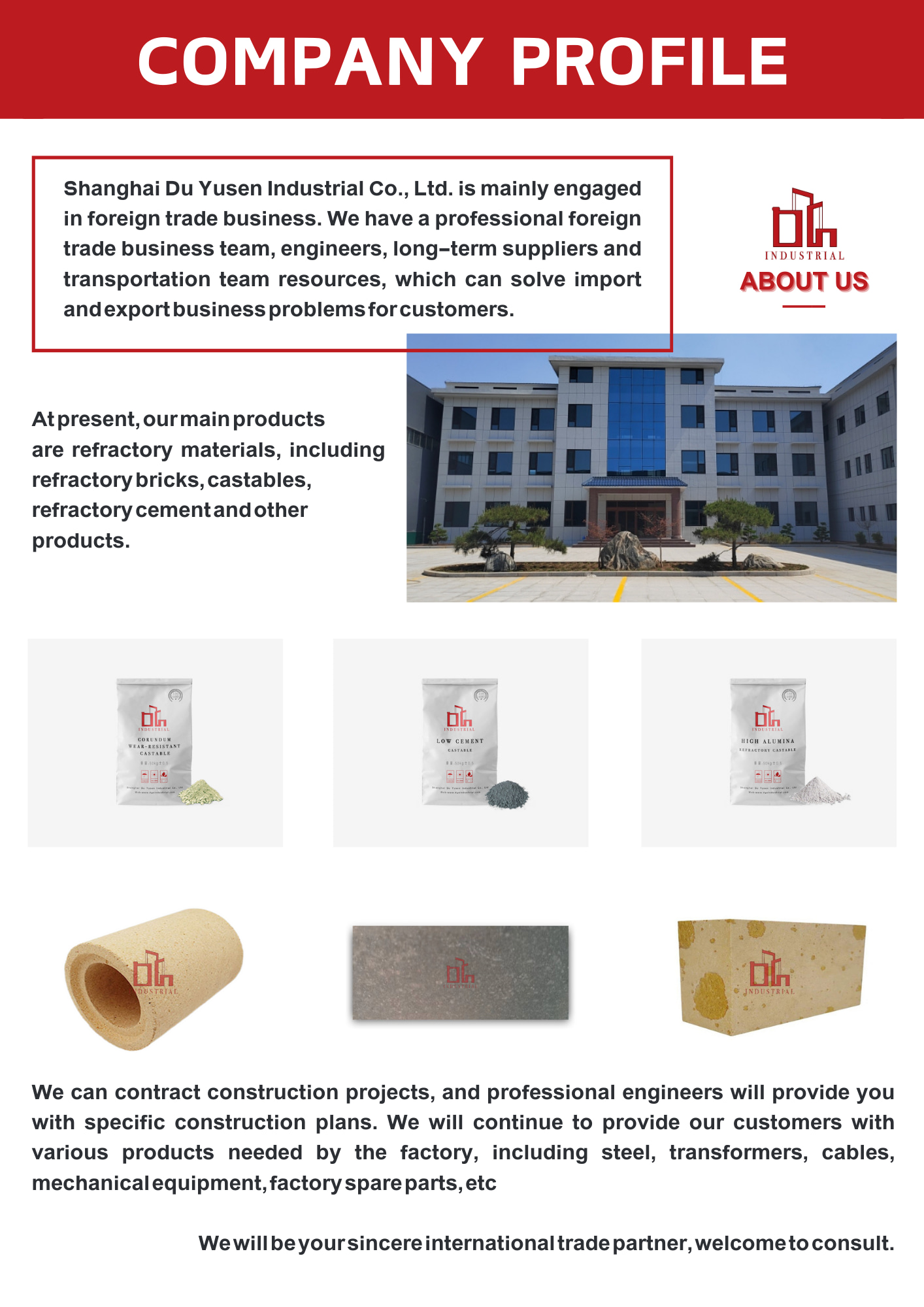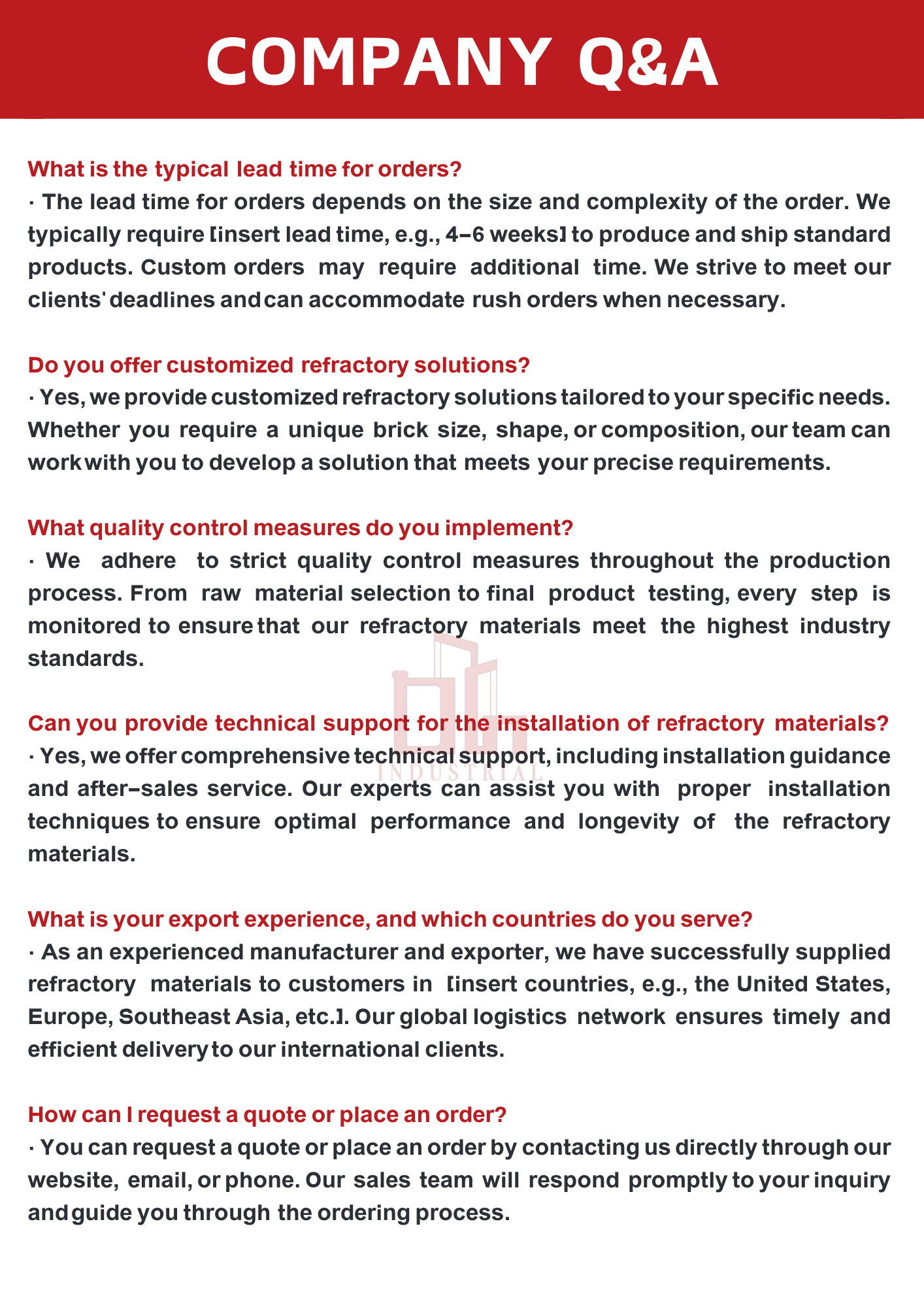Silicon carbide castable is a type of refractory castable that contains silicon carbide (SiC) as a key ingredient. Silicon carbide is a ceramic compound made up of silicon (Si) and carbon (C). It has excellent properties such as high thermal conductivity, high strength, low thermal expansion, and chemical resistance, making it a popular choice for refractory applications.
Payment :
In AdvanceProduct Origin :
ChinaShipping Port :
Shanghai PortLead Time :
15 Working daysSilicon carbide castable is formulated by combining silicon carbide grains or fines with binders and other additives to create a mixture that can be easily applied and shaped. The specific composition and formulation may vary depending on the intended application and requirements.
Key characteristics:
High-temperature stability: Silicon carbide has exceptional thermal stability, making the castable suitable for high-temperature environments. It can withstand temperatures well above 1000°C (1832°F) and maintain its strength and chemical resistance.
Thermal shock resistance: Silicon carbide castable exhibits good resistance to thermal shock, allowing it to withstand rapid temperature changes without cracking or spalling.
Abrasion and erosion resistance: Silicon carbide is known for its high hardness and wear resistance. Castables containing silicon carbide are suitable for applications where there is a risk of abrasive wear or erosive conditions, such as in the lining of kilns, furnaces, and incinerators.
Chemical resistance: Silicon carbide castable has excellent resistance to chemical attack from acids, alkalis, and molten metals. It is often used in aggressive environments where traditional refractory materials may deteriorate.
Silicon carbide castable finds applications in a wide range of industries, including metallurgy, ceramics, petrochemicals, and power generation. It is used for lining various high-temperature equipment, such as kilns, furnaces, boilers, and incinerators. The castable can be applied through various methods, such as pouring, gunning, or troweling, depending on the specific requirements of the installation.
It's worth noting that silicon carbide castables are typically more expensive than traditional refractory castables due to the higher cost of the raw material. However, their superior properties often justify the investment in applications where high-temperature and chemical resistance are critical.
Product parameters:
| Silicon Carbide Castable | DMSC-85 | DMSC-80 | DMSC-60 | |
| Al2O3, % | - | 9 | 9 | 20 |
| SiC+C, % | - | 83 | 78 | 58 |
| Bulk density, g/cm3 | - | 2.68 | 2.6 | 2.5 |
| Water Required for Casting, % | - | 6 – 7 | 6 – 7 | 7 – 8 |
| CCS, kg/cm2 | 110℃x24h | 650(140) | 500(90) | 450(70) |
| 1000℃x3h | 850(150) | 600(150) | 550(100) | |
| 1350℃x3h | 1100(250) | 1000(250) | 1000(250) | |
| PLC, % | 110℃x24h | -0.06 | -0.06 | -0.06 |
| 1000℃x3h | -0.1 | -0.1 | -0.2 | |
| 1350℃x3h | -0.1 | -0.1 | -0.12 | |
| TC, kcal/mh℃ | 350℃ | 11.5 | 11 | 8 |
The way castables are used also determines the quality of the project. Our company has a professional engineering team, welcome to consult.



Tags :